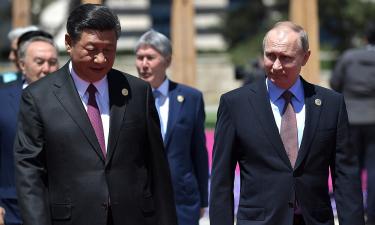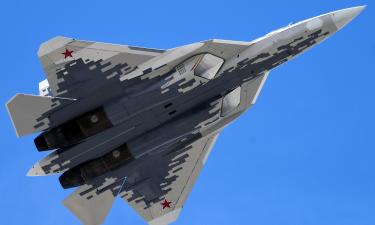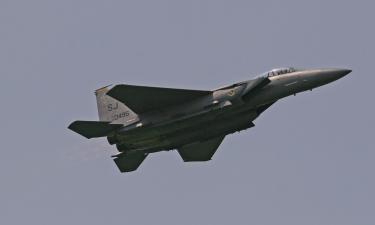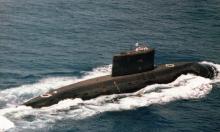Turkey will not be able to win the war in Syria, because Erdogan has his head in the clouds
Recent events in Idlib showed that Recep Erdogan found himself isolated in Syria. Turkish analysts predict his defeat not only in Syria, but also in Libya.
Erdogan will not even be able to set Russia against USA
The President of Turkey has quarreled with all major players in Syria in four years after attempted coup in Turkey. He has quarreled with Russia, the United States and the Arab world. Erdogan's few foreign partners, for example, Qatar, do not give him any strategic advantages.
Turkey's warlike policy against Washington plays against Erdogan too: he accused Washington of preparing a military coup in 2016 and harboring its leaders. To spite the USA, Turkey purchased S-400 air defense systems from Russia, although there was no military need in that.
Erdogan did not win any sympathy in Washington when Turkey attacked the Kurds during Operation Peace Spring. The United States thus lost support "on the ground" in the Syrian conflict. Therefore, after the escalation of the conflict, Ankara will not even be able to set Russia and the USA against each other in Syria.
Pentagon chief Mark Esper said Wednesday that the Trump administration was not considering resuming military participation in the Syrian civil war amid intensified hostilities in Idlib province. Esper said a limited 600-strong US mission remains focused on destroying the remnants of the Islamic State.*
Russia: One should end the war and mop up Idlib.
On Friday night, Russian Ambassador to the UN Vitaly Nebenzya explained to the international community that "the only long-term solution to the Idlib problem and the whole of Syria will be the final and irrevocable expulsion of terrorists from the Arab Republic.
Earlier, Nebenzya promised that Russia would continue to support the Syrian government in the fight against terrorists, while the US would not succeed in forcing Moscow to negotiate with Hayat Tahrir al-Sham* militants in Idlib. He emphasized that in resolving humanitarian issues, the UN works closely with the government of Bashar al-Assad, while Erdogan's position is not to recognize Assad, but to destroy the country through the hands of the Islamists.
Erdogan will not win the war in Syria
An increasing number of Turkish analysts, including former supporters of Erdogan, believe that his current actions will, to a large extent, if not completely, harm him and Turkey in the first place. They also fear that the "Syrian Syndrome" will spread to Libya, where the Turkish army also began suffering losses.
Semih Idiz cited the views of a few Turkish experts in an article for Al-Monitor.
Political observer Fikret Bila believes that this is a war that Erdogan cannot win. The analyst claims that the main goal of Turkey in Syria is to overthrow the Assad regime and ensure the participation of the votes of radical Islamists in the governance of the country. Bila does not believe that such goals are attainable.
"A victory over the Syrian army, which Russia supports ... is not possible," writes Bila in a column for independent news portal T24.
Fehmi Koru, another columnist, who used to support Erdogan and the ruling Justice and Development Party, is also pessimistic about Erdogan's chances for success. Referring to Ankara's scramble between Washington and Moscow, Koru doubts that any results that could be considered a "victory" for Turkey would be obtained with such an approach.
"I'm afraid that the policy that Turkey has been pursuing in Syria since 2011 ... will lead to failure," Koru wrote on his personal blog.
The war in Syria is not a war for the independence of Turkey
Political columnist Murat Yetkin emphasized that Erdogan exaggerates when he identifies Ankara's participation in the Syrian war with Turkey's struggle for independence in 1919-1922.
"No offense, but President Erdogan incorrectly sees that the war for independence, which was waged by Mustafa Kemal Ataturk and his friends for the liberation of the Motherland and the establishment of the Republic, is identical to what is happening in Syria and Idlib," Yetkin wrote on his blog.
According to him, Erdogan's approach to the operation in Syria is also problematic, because it involves military operations on the territory of another country, which puts international legal issues in compliance with the rules established by the United Nations.
The people of Turkey do not approve of the war in Syria
Former Turkish ambassadors Ali Tuigan and Yusuf Buluk emphasized in their jointly written article that the complete lack of national approval was the most striking shortcoming of Erdogan's policy in Syria.
According to them, "at this critical moment, the people of Turkey have the right to know exactly which of their interests will be pursued, what reasons will be put forward, what tools will be used and at what cost."
"The time has come for the Turkish government to go down to Earth and see the reality on the ground," the authors emphasized and recommended Turkey should withdraw troops from Idlib and return to the diplomatic path of negotiations.
*terrorist groups, banned in Russia
Subscribe to Pravda.Ru Telegram channel, Facebook, RSS!




